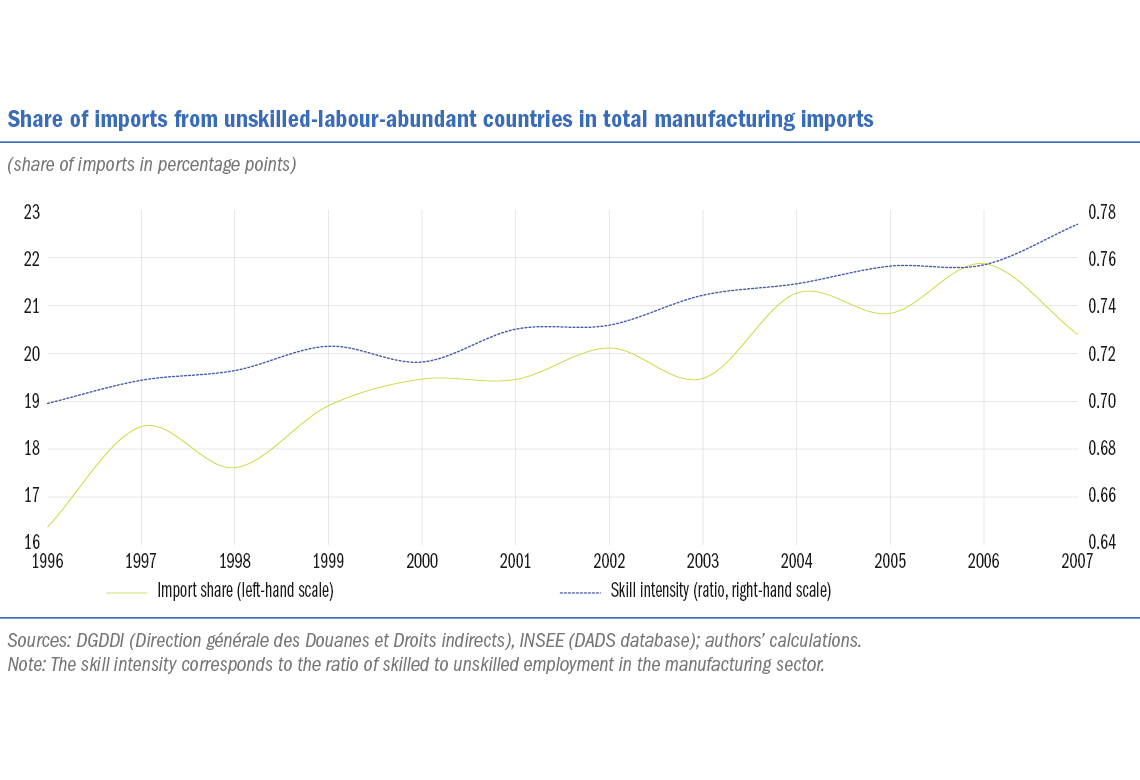
Rue de la Banque no. 51: Winners and losers from globalisation : offshoring benefits skilled workers and hurts the less skilled
This Rue de la Banque, based on the exploitation of detailed data for the French manufacturing industry, argues that offshoring to low wage countries was a strong determinant of the labour market outcomes of low skilled workers in France during the period 1995 2007. The results support the widespread view that international trade generates productivity gains, notably from having access to cheaper inputs, but that these gains are not evenly distributed across the different economic players. Making the most out of globalisation therefore requires implementing effective policies, notably in terms of vocational training
in order to accompany the transition to higher skilled jobs.
The consensus among economists is that trade generates welfare gains because it prompts a more efficient use of resources, increasing productivity and national income. The shared view is also that such gains are unevenly distributed across the different members of society, giving rise to both winners and losers from globalisation (Obstfeld, 2016; Carluccio, Ekeland and Guesnerie, 2017).
This Rue de la Banque presents a novel perspective on the relationship between offshoring and the demand for skills in the French manufacturing industry based on Carluccio, Cunat, Fadinger and Fons Rosen (2015).
Download the PDF version of this document

- Published on 11/15/2017
- 4 pages
- EN
- PDF (580.27 KB)
Updated on: 12/14/2017 18:24
